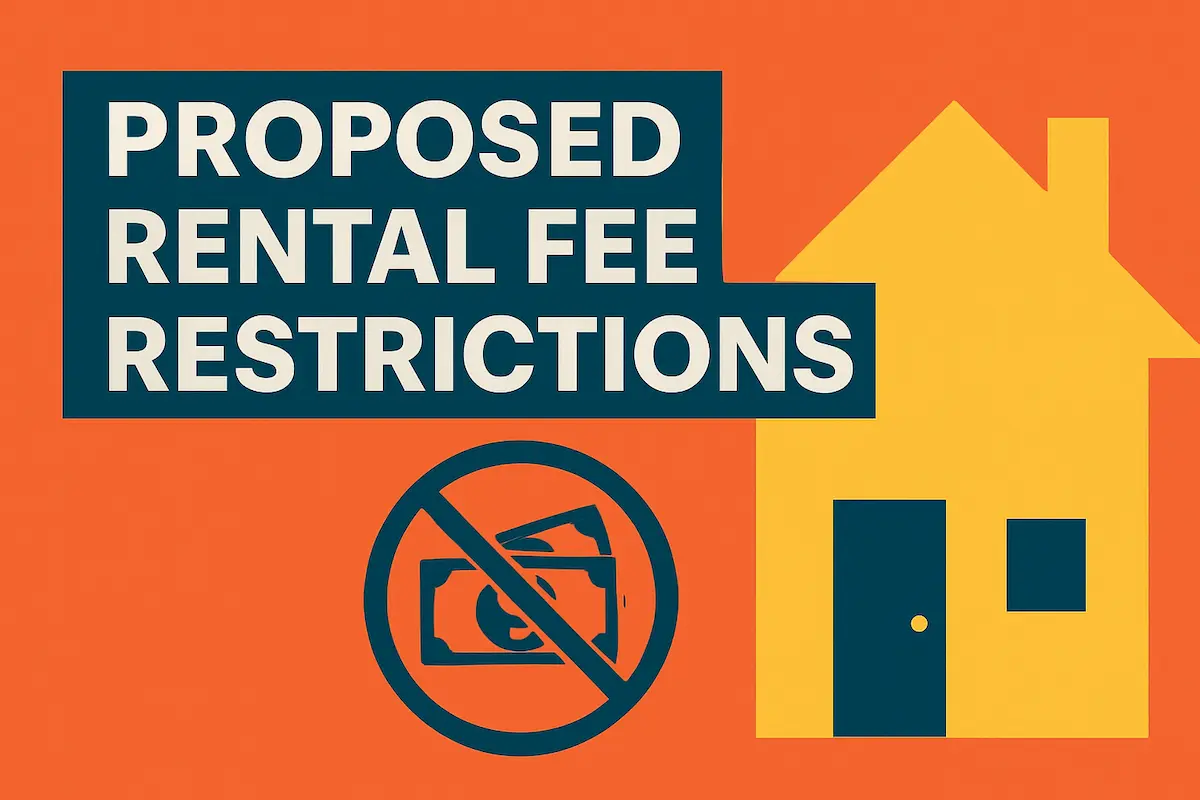In 2024, the rental market in Orange County saw significant legislative changes aimed at protecting tenants and ensuring fairness in rental agreements. These changes to California tenants rights come in the form of three pivotal just cause laws that are designed to prevent arbitrary evictions and promote stability in the housing sector. In this blog post, we’ll dive into each of these laws and their implications for both landlords and tenants in Orange County.
For more information on new rental laws, contact our Orange County property management company today. Whether you need an Irvine property manager, Anaheim rental management company, or Huntington Beach property management service, our team ensures your rental remains legally compliant while maximizing your investment.
Key Takeaways
- Orange County landlords now need a “just cause” for evictions, like non-payment of rent or illegal activities.
- Relocation assistance is required for no-fault evictions, based on tenancy length and unit size.
- Rent control caps annual increases at 5% plus CPI, up to 10%, with exemptions for major improvements.
- Tenants gain stronger protections and financial support, while landlords must ensure compliance and adapt operations.
Table of Contents
Enhanced Eviction Protections
The introduction of enhanced eviction protections under the new Just Cause laws marks a significant shift in the landlord-tenant dynamic within Orange County. This legislation mandates that landlords must have a “just cause” for evicting tenants. Just causes for eviction as defined under this law include: non-payment of rent, significant lease violations, and illegal activities on the property. The objective of this law is to foster a more stable and secure living environment for tenants, ensuring that evictions are justified and backed by substantial reasons.
Deep Dive into Just Causes for Eviction
The new rental laws specify several grounds on which landlords can legitimately evict tenants, each with its own set of criteria and required documentation:
- Non-Payment of Rent: This is one of the most straightforward grounds for eviction. However, the law requires landlords to provide proper notice and an opportunity for tenants to rectify the situation, usually by paying the overdue rent within a specified timeframe.
- Violation of Lease Terms: Lease violations can range from unauthorized occupants or pets to significant damage to the property. Landlords must provide clear evidence of the violation, typically requiring documentation or photographic evidence, and must have previously informed the tenant of the violation, allowing time for correction.
- Illegal Activities: Engaging in illegal activities on the premises is a serious violation. This can include drug manufacturing, sex trafficking, drug dealing, or other criminal acts. Eviction on these grounds often requires coordination with law enforcement and legal documentation.
Implications for Landlords
Landlords are now required to adopt a more meticulous and documentation-focused approach to property management.
- Record-Keeping: Maintaining comprehensive records is now essential. This includes all communications with tenants, detailed lease agreements, payment logs, and any notices or warnings issued regarding lease violations. Digital property management systems have become increasingly valuable for this purpose, offering an organized and easily accessible platform for storing such records. If possible, we recommend keeping physical copies as well.
- Legal Compliance: Landlords must ensure that their lease agreements and eviction notices comply with the new law’s requirements. Before any eviction, we recommend consulting with an attorney.
The emphasis on just cause for eviction underscores the importance of maintaining positive landlord-tenant relationships. Open communication and early resolution of issues can prevent situations that might lead to eviction.
Implications for Tenants
Thanks to the enhanced eviction protections, tenants in Orange County now enjoy greater security and stability. Knowing that eviction must be justified by specific, legitimate reasons provides tenants with a sense of security and stability, particularly in a fluctuating rental market. Such protections empower tenants to address maintenance concerns and engage in discussions about lease terms without fear of retaliation. Furthermore, tenants have the right to challenge unjust evictions.
Challenges and Considerations
While the law aims to protect tenants, it also presents challenges and considerations for both parties. For instance, certain situations may not be clearly defined as just cause, leading to disputes and potential legal challenges. For example, repeated late payments or minor lease violations might not always lead to eviction but could strain the landlord-tenant relationship.
The enhanced eviction protections introduced in Orange County represent a progressive step towards ensuring tenant stability and fairness in the rental market. However, landlords must exercise extra caution around their rental to ensure their lease and their tenant screening process is thorough.
Relocation Assistance Requirements
Another law introduced in Orange County mandates relocation assistance for tenants who are evicted through no fault of their own. This legislation is designed to address evictions resulting from circumstances such as property renovations, conversion of rental properties to non-rental uses, or other situations where the tenant is not responsible for the termination of the lease. The law specifies that the assistance amount should reflect various factors, including the duration of tenancy and the size of the rental unit, etc.
Criteria for Relocation Assistance
- Length of Tenancy: Tenants with longer tenures are often entitled to higher relocation assistance, recognizing the increased difficulty and disruption that comes with relocating after many years in the same residence.
- Unit Size: The size of the rental unit factors into the assistance calculation, with larger units typically warranting higher assistance amounts due to the higher costs associated with moving and finding comparable housing.
- Specific Circumstances: The law also considers the specific reasons for eviction, with different scenarios potentially leading to varying levels of assistance. For example, evictions due to extensive renovations might result in higher assistance amounts compared to conversions to non-rental uses.
Implications for Landlords
For landlords, this law introduces several significant considerations:
- Financial Planning: The requirement to provide relocation assistance adds a new financial consideration to property management. Landlords must now account for these potential costs when planning property upgrades or changes in use.
- Project Delays: The obligation to provide relocation assistance might lead to delays in redevelopment or renovation projects. Landlords may need to navigate additional administrative steps and financial planning to comply with the law, potentially impacting project timelines.
Implications for Tenants
Tenants stand to benefit in several ways from the relocation assistance requirements:
- Financial Support: The most direct benefit for tenants is the financial support provided during the relocation process. This assistance can help cover moving costs, security deposits, and other expenses associated with finding and securing new housing.
- Housing Stability: By mitigating the financial burden of unexpected relocations, this law contributes to greater housing stability for tenants. This is especially critical in areas like Orange County, where the housing market can be particularly competitive and expensive.
Challenges and Considerations
While the relocation assistance law provides clear benefits, it also raises several challenges:
- Administrative Burden: The process of determining eligibility, calculating assistance amounts, and disbursing funds can be administratively burdensome for landlords. This may require additional resources or systems to manage effectively.
- Impact on Rental Market: There is a concern that the additional costs imposed on landlords could trickle down to tenants in the form of higher rents or more stringent screening processes. This unintended consequence could potentially impact the affordability and accessibility of rental housing in Orange County.
- Legal Disputes: As with any new legislation, there is the potential for legal disputes over the interpretation and application of the law. Landlords and tenants may find themselves in disagreements over eligibility, assistance amounts, or compliance with the law’s requirements.
Rent Control Laws
The new rent control laws mark a critical shift in the approach to managing the rental market in Orange County.
Framework of Rent Control
The new rent control laws are structured around a set of principles and guidelines that define the maximum allowable rent increase, which is typically tied to an economic indicator such as the Consumer Price Index (CPI).
- Annual Cap: The law specifies an annual cap on rent increases, beyond which landlords cannot raise rents.
- Exemptions and Special Conditions: The law also outlines certain exemptions and special conditions under which landlords might be permitted to exceed the annual cap, such as significant property improvements or extraordinary maintenance costs that go beyond normal wear and tear.
Challenges and Considerations
Despite the intended benefits, rent control measures introduce a range of challenges and considerations for landlords and tenants.
- Supply and Demand: Oftentimes, rent control leads to a decrease in the supply of rental properties, as landlords may choose to convert rental properties to other uses or be disincentivized from entering the rental market.
- Maintenance and Quality of Housing: Capping rent increases could result in deferred maintenance or lower quality housing, as landlords may lack the funds or incentive to invest in property upkeep.
- Market Distortions: Rent control can also lead to market distortions, where new or significantly renovated properties command much higher rents compared to rent-controlled units, leading to a divided market with varying levels of housing quality and affordability.
Hiring a Property Management Company
If you’re looking for a reliable property management company to help you rent your Orange County rental property and stay compliant with all the local, state, and federal laws and regulations, consider working with Good Life. We have over 10 years of experience in the property management industry and have managed over 1000+ properties. We service all of Orange County, ensuring landlords in every city receive expert support. Whether you need a Fullerton property management expert, Costa Mesa rental property manager, or Newport Beach property management company, our team is here to help. We make owning rental property easy.
Frequently Asked Questions
What is the tenant rights hotline in California?
You can call the Statewide Tenants’ Rights Hotline at (888) 495-8020 for assistance with California tenant rights issues.
How do I evict a tenant in Orange County California?
To evict a tenant in Orange County, California, landlords must follow a legal process known as an Unlawful Detainer action. This process starts with providing the tenant a written notice, which must be appropriate for the specific situation. If the tenant fails to comply with the notice, the landlord can then proceed to file an Unlawful Detainer case in court. The eviction process is expedited and usually allows for a trial to occur 20 days after the tenant’s response to the court summons. It’s important for landlords to note that only the sheriff can physically evict someone.
Resources
Rent Stabilization and Just Cause Eviction Ordinance
Buena Park Just Cause Eviction Ordinance
Steve Welty
Subscribe to our Weekly Newsletter
Join the 5k+ homeowners receiving Local Law Updates and Landlord Tips. Delivered to your inbox every Saturday at 6am PST.
Interested in speaking with an Orange County Property Management Expert? Get in touch with us:

Pro Services
Tired of headaches?
We got you covered.




Schedule a call with a
Property Management Expert
Here’s what you’ll learn from the call:
- How much your property will rent for
- How much property management will cost you
- How long it will take to rent your property
Orange County Property Management Blogs

SB 681 Could Make Common Rental Fees Illegal in California
California’s SB 681 targets application fees, convenience fees, and more. Learn what this proposed law means for landlords and how to prepare.

California Law SB 448 Could Help Landlords Remove Squatters Faster
SB 448 is a proposed law giving landlords a faster, lawful way to remove squatters from residential properties—without going through full eviction court.

How Good Life Screens Tenants: Our Proven Process Explained
Discover how Good Life Property Management screens tenants using proven, law-compliant criteria. Learn our exact process to minimize risk and avoid bad tenants.










